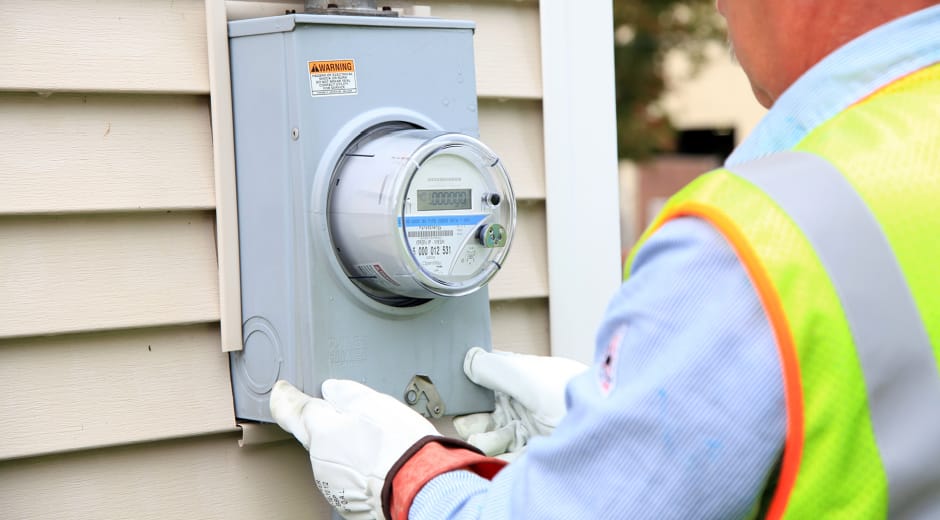Forced Smart Meters in NE Ohio: An Interview with Attorney Jensen Silvis

BY NICK ROGERS
TOR: Jensen E. Silvis is an Akron based attorney specializing in property law, estate planning, contracts, civil litigation, landlord-tenant, business formation, and criminal defense. He has teamed up with attorneys from Mendenhall Law Group to take on forced Smart meter installation (water and electric) without informed consent or opt-out provisions in the cities of Cuyahoga Falls and Streetsboro. Jensen, thank you for agreeing to speak to The Ohio Register.
Jensen: My pleasure. Thank you for engaging the public in this important issue.
TOR: Mendenhall Law Group claims to “…represent the underdog, the Davids of the world who are up against the Goliaths.” Is that the same type of mentality that drives you to pursue legal justice at your own law firm?
Jensen: It certainly is. The cases where I am able to fight for “the little guy” are the ones that keep me coming in to work every day.
TOR: Speaking of collaboration, Mendenhall Law Group is working with Ohio Stands Up!, a non-profit that helps fund legal actions against government overreach. The group spawned from Gov. Mike DeWine’s Covid emergency declaration; an action that inspired the group’s co-founders Jen Drabik and Jason Hedges to file a lawsuit with the help of attorney Thomas Renz in August of 2020. The suit was dropped seven months later when DeWine dropped the state of emergency. Were you aware of Ohio Stands Up! at the time of this initial suit?
Jensen: I was not a part of that lawsuit, nor was I aware of OSU at that time. But I am familiar with the group at this juncture.
TOR: Since the afore-mentioned state of emergency suit, Mendenhall Law Group has been involved in other Covid-related cases with the funding help of Ohio Stands Up!; cases such as the 2022 suit against the Hudson School District and their “mask to stay, test to play” policy. Mendenhall Law Group clearly stands by their mission statement of representing the underdog as you do. Tell me about the origins of the Smart meter choice suits and how you connected with Mendenhall Law Group.
Jensen: I have shared office space with Mendenhall Law Group since 2016. We have worked on numerous cases together over the past decade. I became involved in the smart meter choice suits when a call came in to Mendenhall’s office regarding a Streetsboro resident and the imminent threat to shut off her water. Mind you, not for nonpayment, but simply because she did not want to install a “smart meter.” In all honestly, I was only tangentially aware of the push for these devices at that time. Thereafter, I spent countless hours researching smart meters and their legal implications.
TOR: Streetboro and Cuyahoga Falls residents are concerned – as are millions of Americans across the country – both with the inherent privacy invasiveness of Smart meters and their proven deleterious health effects. Is there a particular issue of harm that you focus on in the suits, or is it an all-encompassing sort of thing?
Jensen: Each case is a bit different depending on the circumstances. For instance, beyond the health and privacy issues there is a significant concern regarding due process and a city’s ability to shut off customers’ water. Under many local ordinances I have reviewed, I do not believe many of these municipalities have the right to terminate service. So, our focus so far has been largely based on due process, privacy, and health issues. Our state and federal constitutions protect us.
TOR: According to the group Lobbyists For Citizens, the Streetsboro case has seen some recent success in the form of a TRO, or temporary restraining order against the installation of Smart water meters without consent. Is this where the case currently stands?
Jensen: I am unfamiliar with that group but that is accurate. We were able to convince a judge to grant us a TRO and then the city agreed to refrain from shutting off our clients’ water for the pendency of the case.
TOR: The Cuyahoga Falls suit is just getting off the ground, as the city is mandating the installation of both Smart water and electric meters. My understanding is that most utilities in Ohio offer punitive Smart electricity meter opt-out fees (an initial fee and a monthly one), but that it is not a state-mandated option for them to give. Is this correct? Is it correct that no opt-out exists for Smart water meters at all?
Jensen: That is correct. Cuyahoga Falls was filed about six weeks ago. The city agreed to refrain from terminating utility service until further order of the court. Because they are a “municipal utility,” they are exempt from the electric opt-out provision. And unfortunately, there is no opt-out in Ohio for water meters although many other states have them.
TOR: The Smart meter battle is an ongoing one for residents all over Ohio and the entire United States. Harrowing stories of water shut-offs have been flooding in, so to speak, as a result of citizens’ refusals to cave to Smart grid overhauls. Do you keep abreast of other Ohio cities forcing these devices upon their citizenry, and do you plan on taking on suits against other municipalities?
Jensen: I pay attention as best as I can. Smart meters are being implemented nationwide at an alarming rate, largely without citizens’ education and consent. We have received many calls from around Ohio but have only pursued three court actions thus far. However, I am certainly willing to speak to anyone from around the State who may be interested in standing up for their rights.
TOR: Groups like Southwest Ohio for Responsible Technology (SWORT), and chapters of Children’s Health Defense (CHD) and the Weston A. Price Foundation have been pursuing utility meter choice legislation through various means such as video conference calls with state representatives in Ohio and online letters of support. You may be aware that, in 2013-2014, a bill (which was endorsed by the ACLU – a bill that, I believe died in committee –), was introduced which would have required customer consent for Smart meter installation. Currently, Rep. Sedrick Denson has said that he would support Smart meter choice legislation if groups like I mentioned could garner further support from other lawmakers. What are your thoughts on utility meter choice legislation becoming a reality somewhere on the near-term horizon?
Jensen: I have also contacted state legislators and had some fruitful conversations but, as of today, no bill drafting has been started to my knowledge. I acquired numerous bills introduced in other states, and I think these could be used as templates here in Ohio. Statewide legislation could be the best way to resolve this issue if any representatives were willing.
TOR: I assume you view the Streetsboro and Cuyahoga Falls suits as potential precedent setters. Do you get the sense that these cases could be referenced for years to come in future Smart infrastructure disputes?
Jensen: I think they certainly could be. There is also a chance that the parties settle before we get to a trial. And, even if we get to trial, there is always the possibility of appeals. With that said, these are the first cases in Ohio to be filed, so they have the potential to be extremely important.
TOR: Whether it’s concerns over high energy bills, privacy, or safety (or the argument that Smart meters actually use more energy than traditional analogue ones), people seem to be waking up to the fact that Smart meters are far more than just “convenient.” I’ve mentioned Ohio Stands Up! and its ongoing donation efforts with Mendenhall Law Group and others, as well as SWORT et al. and their lawmaker meetings. Are there any other ways you would recommend for citizens to get involved?
Jensen: I would like to commend all the groups working on this important issue and urge citizens to do all the research they can. There are plenty of resources out there for folks to educate themselves. If you feel strongly that these devices are risks to health and privacy, I recommend writing or calling your local, state, and federal representatives to demand opt-out provisions. And if the situation becomes so dire that you are being threatened with service termination, feel free to reach out to me.
TOR: Jensen, I wish you good luck in these and future suits that attempt to keep a lid on the technocratic nightmare jar that seems ever-so-close to bursting open. With success in cases such as these, I believe it could empower those of us who are worried about these infringements on our constitutional rights but feel powerless to stop them.
Jensen: Thank you for having me. Everyone deserves the opportunity to make informed decisions and exercise their rights. Please reach out anytime for additional updates.




